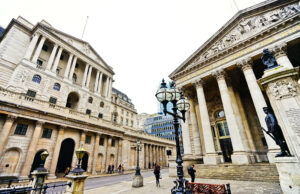Additional rises needed, declares Bank of England ratesetter

The Bank of England must not be “complacent” in the fight against rising inflation, a member of the Bank’s rate- setting monetary policy committee has warned.
Catherine Mann said more interest rate rises were needed to convince people that price growth would move back to the Bank’s target.
In a speech at the University of Kent, Mann said some measures of household and business inflation expectations risked rising out of the control of the Bank, complicating her and others’ role as ratesetters to return inflation to its 2 per cent annual target.
“The drift in medium-term expectations is already apparent in the data,” Mann said. “We cannot be complacent in the face of the short-term spikes and medium-term drift. Acting more forcefully now, to ensure that the drift does not become the norm, is designed to avoid depending on a deeper and longer contraction to return inflation to target.”
Mann, a hawkish member of the Bank’s policy committee, which has nine members, has voted this year in favour of bigger interest rate rises to stem price growth.
In addition to soaring energy costs, she has argued that the weak pound is helping to generate inflationary pressures and that the Bank would be better off raising rates quickly now and giving itself room to ease policy if an economic crisis were to unfold. Last month the Bank raised interest rates by its highest margin since 1995 at 50 basis points. Money markets are penciling in another such rise in September as inflation has reached double digits and could peak at 20 per cent in spring next year, according to some forecasters.
Mann said that though long-term inflation expectations fell back to 2 per cent, medium-term measures were more volatile. This mattered because it could lead to workers demanding higher wages to compensate for price growth and businesses raising prices in anticipation, she said.
Surveys of consumer, business and financial market inflation expectations are used by central banks to measure whether their policies are considered credible in restoring moderate and stable price growth.
Mann said that a “drift in medium-term expectations is the major cause of concern” and should embolden efforts to tighten policy. “The monetary policy committee has the tools and the independence to return inflation to target once energy prices have stopped rising,” she said. “We will not tolerate a persistent overshoot and will stay vigilant even when headline rates start to come down. But it is also the case that the more we control medium-term inflation expectations now, the less tight monetary policy will need to be.”




